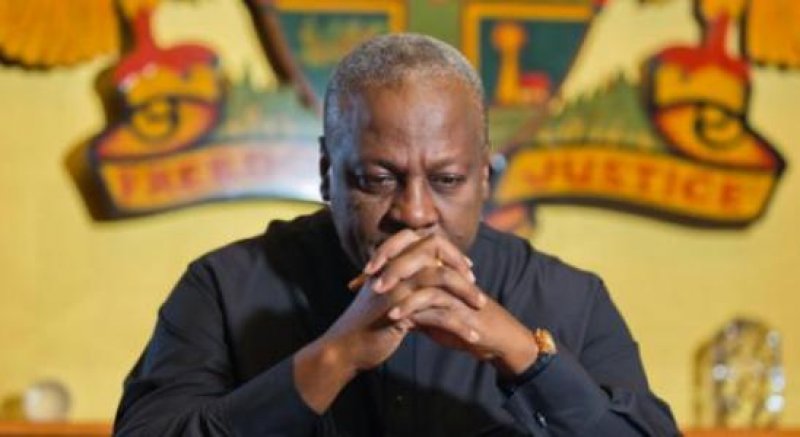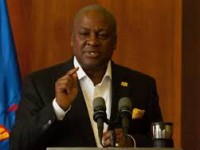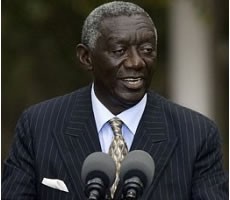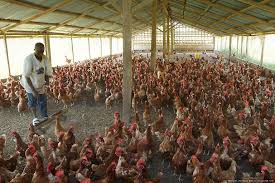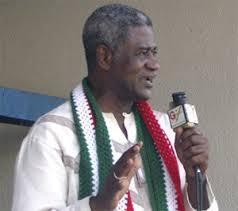 The People’s National Convention (PNC) has called for the adoption of proportional representation as an alternative to the winner-takes-all system.
The People’s National Convention (PNC) has called for the adoption of proportional representation as an alternative to the winner-takes-all system.
Tthe party describes the winner-takes-all system as a “hijack of the governance system”.
According to the party’s General Secretary, Mr Bernard Mornah, the current system makes it difficult to harness the ideas of all Ghanaians for national development.
“Some ideas, whether good or bad, dominate simply because we go to cast a vote, and since we did not win, whatever we say will not find space in policy formulation and implementation,” the PNC General Secretary told the Institute of Economic Affairs (IEA) Advisory Committee on Winner Takes All.
Proportional representation
Many political commentators, including Prof. Kwesi Botchwey, have advocated proportional representation — an electoral system designed to represent in a legislative body each political group or party in proportion to its actual voting strength among the electorate.
Currently, African countries practising proportional representation include Namibia, Lesotho and South Africa.
The committee, under the chairmanship of the Metropolitan Archbishop of Accra, Most Rev. Gabriel Charles Palmer-Buckle, is soliciting views from various stakeholders as part of ongoing consultation on the issue by the think tank.
The committee was set up to re-examine Ghana’s winner-takes-all system and to supervise the conduct of a nationwide public consultation process.
The committee has so far been to Tamale, Kumasi and Takoradi and has also sought audience with groups and individuals, including the Ghana Bar Association, former Finance Minister, Prof. Kwesi Botchwey, and former President Kufuor.
Nana Akufo Addo’s status
To demonstrate how restrictive the system is in promoting consensus building, Mr Morna said Nana Addo Danquah Akufo-Addo, the 2012 flag bearer of the New Patriotic Party (NPP), won over 40 per cent of the votes in the last elections. However, because of the current system, he was currently ‘irrelevant’ to Ghana’s governance unless he became president.
“Whatever he says, he is an opposition leader; but where we have a semblance of propositional representation as is done in Senegal, we realise that the main opposition leader actually finds his ideas in the government until the people decide otherwise, a reason for which Abdoulaye Wade, for 27 years, was in government until he was voted as President.”
He said in Ghana, where the ideas of opposition members were even implemented, it was not done well because of lack of consultation.
He cited the National Health Insurance Scheme (NHIS) and the Ghana Educational Trust Fund (GETFund) as PNC ideas that had been adopted by successive governments but had not been well implemented.
PNC Chairman/Treasure
The Chairman of the party, Alhaji Ahmed Ramadan, observed that the nature of the current system was such that in the absence of broad consultation where every view mattered, there was some form of cynicism where everything the government did was deemed bad.
While admitting that proportional representation had different formulations, he said the way out was for the nation to deliberate and create a suitable system.
“We do not believe that the winner-takes-all system is enhancing the social cohesion of this country. And it is not giving the necessary backing to whichever party is in government either,” he said.
The party’s National Treasurer, Mr David Apassera, however, had a different opinion. According to him, the problem is not about representation in Parliament, which proportional representation is mainly about, but rather about executive control.
“If you have a president who appoints to all positions people from only his party, we have a major problem.”
IEA members
A member of the IEA Advisory Committee, Prof. Stephen Addei, said the 1989 Constituent Assembly, recognising the need for proportional representation, observed that while it was too complicated at the time, there was the need to start with the winner-takes-all system and along the way shift to proportional representation.
He said over the years, it appeared the National Democratic Congress (NDC) and the NPP always waited for their turn in government rather than pursuing the proportional representation agenda.
Another member of the committee, Dr Rose Mensah-Kutin, contributing to the discussions, expressed serious concern over the mode of voting being prescribed for the referendum for the ongoing constitution review process.
She said the situation where about 41 issues were being lumped together for a ‘yes’ or ‘no’ vote would not augur well for the process.
“The general feeling is that there are different issues and if you pull all of them together for people to say yes, there may be issues that people may want to vote no for. Behind all of that is a sense of running too fast and not giving citizens room to think through and learn to participate.”
Over the years, the closest the NDC and the NPP have come to in an inclusive government has been to appoint members from small parties, particularly the Convention People’s Party and the PNC.
However, according to some political commentators, issues, including the need to satisfy party interests and deep-seated mistrust between the NDC and the NPP have over the years ensured that the two parties do not appoint members of the opposing party to key positions when one of them is in government.
